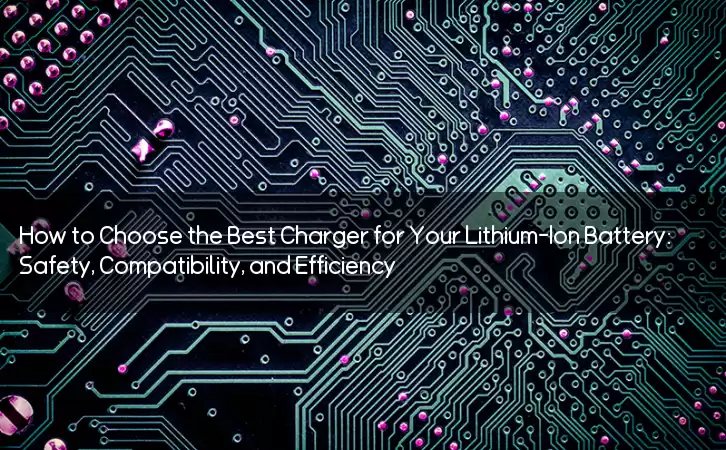Information Center
How to Choose the Best Charger for Your Lithium-Ion Battery: Safety, Compatibility, and Efficiency
Published:2023-07-18 20:34:44 Author:Green WCND Views:41When it comes to charging lithium-ion batteries, the options are numerous and varied. However, not all chargers are created equal, and some can even damage your battery or pose a safety hazard. With that in mind, let’s dive into what chargers work with lithium-ion batteries.

First, it’s important to understand the nature of lithium-ion batteries. These rechargeable batteries are commonly used in portable electronics like smartphones, laptops, and power banks due to their high energy density and relatively low weight. However, they require a careful charge and discharge cycle to function optimally and safely.

Lithium-ion batteries work best when they are charged slowly and steadily, with a constant current and voltage. This is where advanced chargers come in - they can regulate the flow of electricity to the battery and ensure that it is charged safely and efficiently. Some lithium-ion batteries even come with their own chargers designed specifically for that particular battery model.
If you’re looking to charge a lithium-ion battery, there are a few things to look for in a charger. First and foremost, you’ll want to make sure that the charger is compatible with your specific battery. Many lithium-ion batteries have proprietary connectors and charging protocols, so it’s crucial to match the right charger to your battery.
Next, look for a charger with a high enough amperage rating to charge your battery quickly and efficiently. For example, a battery with a capacity of 2,000 milliampere-hours (mAh) would ideally be charged with a 2-amp charger, as this would deliver a full charge in 1 hour. However, a slower-charging 1-amp charger may be better in cases where you want to maximize battery life and reduce heat buildup.
Another important consideration is safety features. Look for a charger with overcharge protection, which will prevent the battery from being overcharged and potentially becoming unstable or even exploding. Short circuit protection is also important, as it can prevent damage to both the battery and the charger in case of a malfunction.
Finally, consider the overall build quality and reputation of the charger manufacturer. Cheap chargers from unknown brands may not be up to safety standards and could pose a risk to your battery or even your personal safety. Stick with reputable brands and products that have been tested and certified for safety.
In conclusion, there are a wide variety of chargers that work with lithium-ion batteries, but not all are created equal. Look for a charger that is compatible with your battery, has a high enough amperage rating, includes safety features, and is made by a reputable manufacturer. With the right charger, you can safely and efficiently keep your lithium-ion batteries charged and ready for use.
The battery pack is the heart of a golf cart, silently powering every acceleration and climb on the green. However, battery degradation often goes unnoticed, mu···
The battery pack is the heart of a golf cart’s power system, yet maintaining it has long been a challenge for technicians. Traditional troubleshooting methods—···
For golf course managers, ensuring smooth and efficient operations is crucial for providing a memorable experience for golfers and maintaining the reputation of···
A battery tester ensures golf course cart batteries operate efficiently and reduces downtime through the following ways:I. Precise Battery Condition DiagnosisOp···





